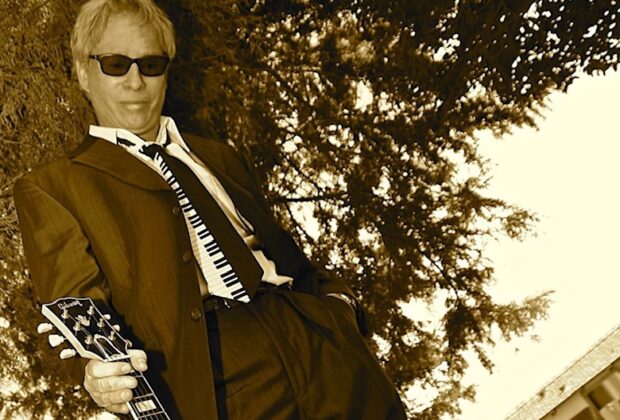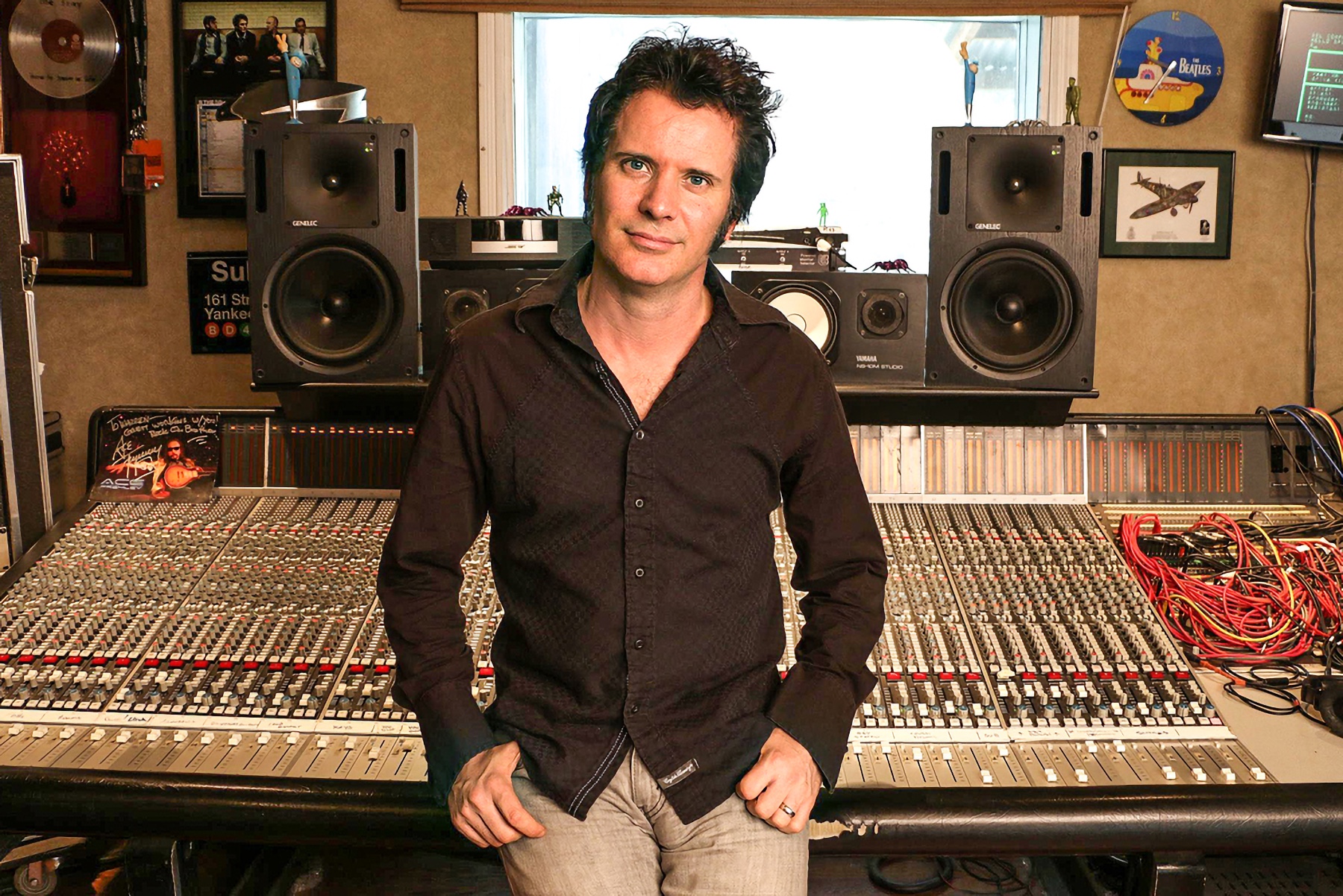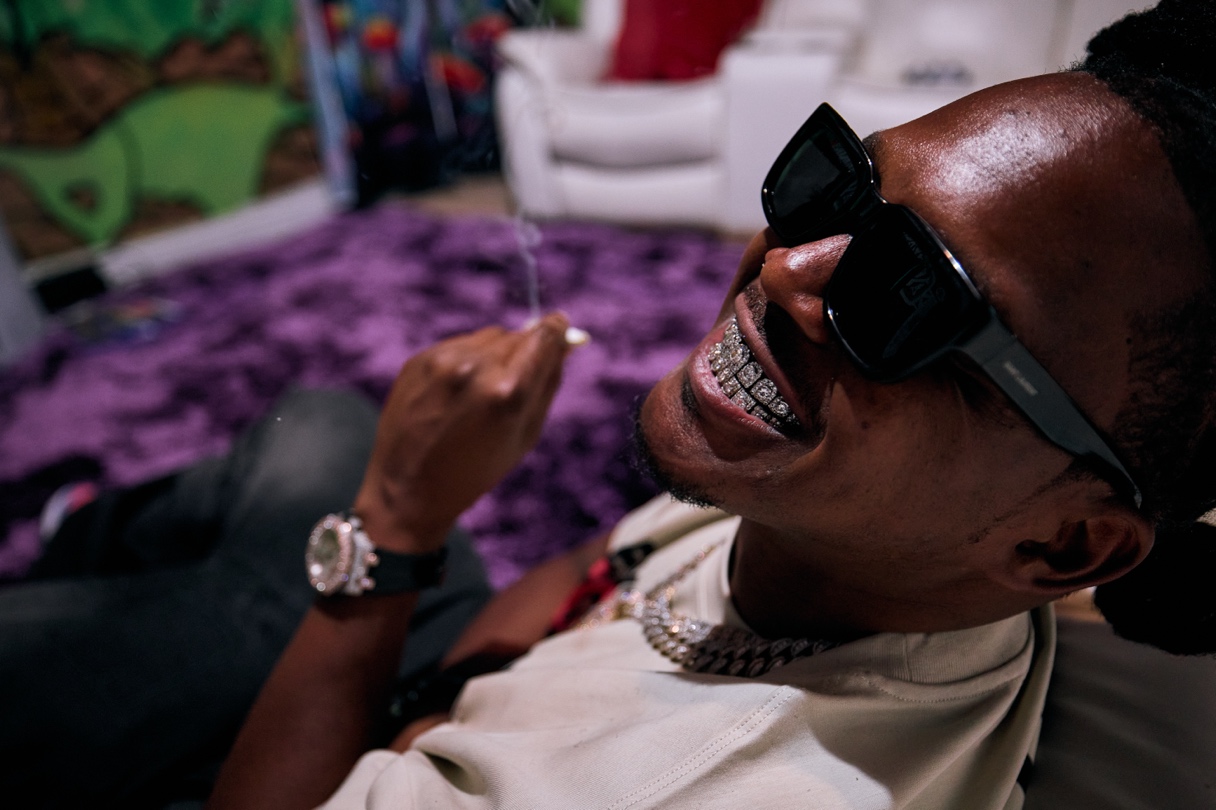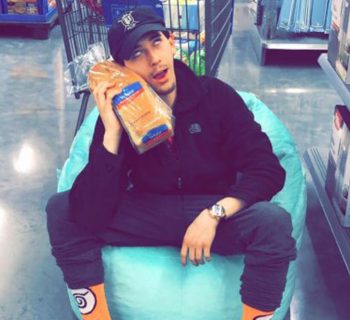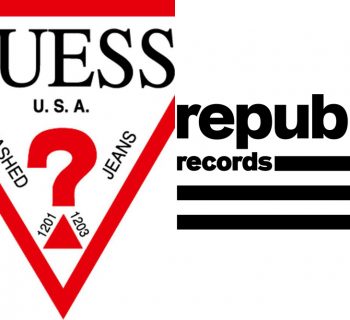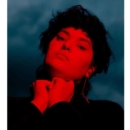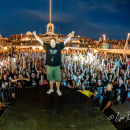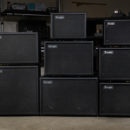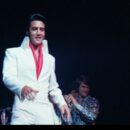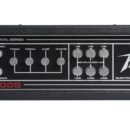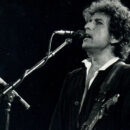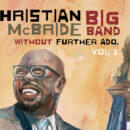By Dr. Dave
Before I share my cautionary tale about an encounter with an independent record label that ultimately led me to take back control of my music and start my own, I feel it’s wise to impart one enduring truth I have learned from my three decades as a contemporary jazz guitarist and recording artist: Any and all money that is made by a label comes from the artist. No matter what kind of services they provide—recording, manufacturing, distribution, promotion—ultimately, the artist is the one paying for everything. They may take over the administration of that money but it’s all generated from the music the artist creates. Don’t let anyone tell you otherwise or try to manipulate you. You’re the creator and they have nothing to market or sell without your creative product.
In the mid-’90s, I was signed to a small label out of San Diego called Offshore Music, which was owned by a fellow musician Jayson Tipp. Jayson did a great job getting my name and music out there. I’ve always felt that signing with an indie label is a good option if you find someone great to work with.
For two years, I charted several airplay hits on The Gavin Report (“Smooth,” which hit No. 28, and “Love Potion” (No. 42) and released two albums under my artist-name Dr. Dave, which was a big deal in those days. The most popular of these albums was Smooth, which featured saxophonist Ernie Watts, trumpeter Freddie Hubbard and keyboardist Carl Evans, Jr. of the band Fattburger. Unfortunately, as it happened many times in those days, Offshore Music went out of business, but thanks in part to them, I now had national attention and hundreds of thousands of fans listening to my music.
I was flattered when another prominent indie label reached out wanting to sign me, and the last thing I would have thought was to check the contract for a clause saying they couldn’t change my artist-name. Without my consent, after I recorded my first project for them, the head of the label decided he was going to put the name “David Paul” on the CD and market me with that name.
I was engaged in litigation with that label for many years and couldn’t record with anyone else or even release anything on my own. Finally, the label and I agreed to an out-of-court settlement, which meant I once again had ownership of my music and a green light to start releasing new material.
By then, with iTunes, Spotify and the like, the digital age had taken over the music industry and I had to do a lot of organizing and researching to figure out the best way to share my music. I quickly learned that while artists make less money with digital agreements than we did releasing physical products, we have more freedom and give the consumers many more choices on how they consume and enjoy what we create.
Considering that I’ve run my own label, Hatherill Records (after my given surname), for a number of years now, it may surprise some to know that at first I wanted to be an artist only and had no interest in running my own business. I knew a guy who was a DJ on popular jazz stations who was starting a small label, and I suggested a partnership where he could manage and serve as administrator for the music I produced. But when he suddenly stopped communicating, I realized it was not going to work.
There’s an old adage that goes, “If you want something done right, do it yourself.” I knew that if I wanted to make things happen as an artist again, it would be up to me.
That’s my Tip No. 1 – Assemble a team of competent, motivated veteran industry professionals with expertise in different aspects of the music business. I hired a PR person, advertising person, radio rep and because my music is considered smooth jazz, developed a relationship with smoothjazz.com to help promote and make my music visible to fans. I also registered with an entertainment attorney—an experienced one this time—to help me set up and organize what became Hatherill Records. Also make sure you work with a great tech guy to help you resolve the many issues that will inevitably come up on that front.
Tip No. 2 is that if you get to a point where launching your own label is the best path forward, you have to come to terms with the fact that you’ll have to do something you as an artist would probably prefer not to— run a business. In my experience, most musicians don’t have a natural ability to do that, so we have to work harder.
If you’re ready to go but feel overwhelmed by all the details, Tip No. 3 is to start the process by reaching out to musicians you know and trust, friends and collaborators and contacts who can connect you to industry pros who are good at what they do, and steer you away from those that aren’t.
As the president of my label, my job is to be an administrator of my music and give it the best chance to get out there. It’s very rewarding to know that I don’t have to worry ever again about what an outside label is doing or not doing with my career. While it’s a big relief, it’s also a test to see how dedicated you are to your music. If you ask yourself if it’s worth the hassle and expense to share your music with the world, then by all means, creating your own label is the way to go.
About Dr. Dave
Longtime fans of contemporary jazz may remember Dr. Dave from his initial success as a recording artist in the mid-’90s, when his albums I Like It Like That, Smooth, and Cruisin’ made big splashes in the early days of the Smooth Jazz format. Its embrace of these recordings inspired Dr. Dave to return to the scene full-force with Midnight Daydream (attributed to Dave Dave and the Housecall Band), which spawned four hit singles, starting with “Sexy Cindy”—one of his biggest hits ever, ranking No. 1 for Smooth Jazz Guitar songs in the U.S. on Radio Guitar One’s Top 20. The album also included “Cecil’s Groove,” his all-time most streamed song which is currently at over 3.7 million streams on Spotify. The album’s fourth single was a blues, jazz, funk and rock track developed around the opening “Hey Hey Hey Hey” riff heard nightly since 2014 by the house band (who wrote it) on The Tonight Show Starring Jimmy Fallon. Dr. Dave and the Housecall Band followed up in 2021 with Carefree Revisited, a full band revamp of an earlier unreleased solo album. Dr. Dave’s most recent single is “Reserved For Abbie.”

